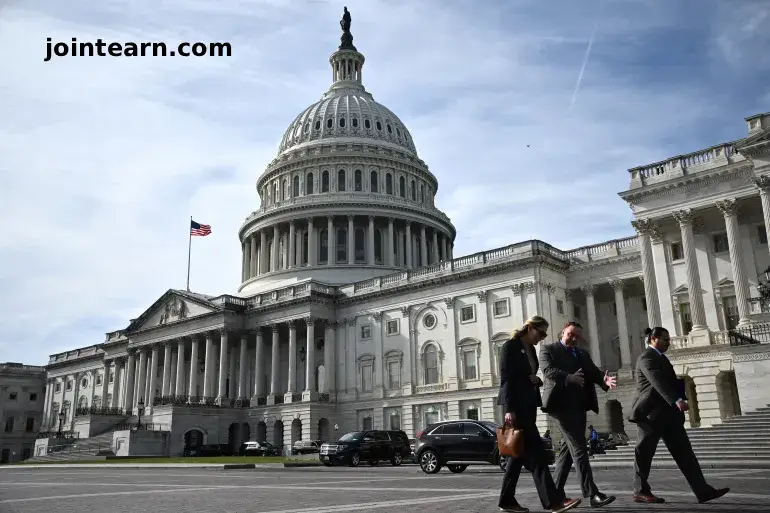
The US government shutdown entered its 38th day as Senate Republicans rejected a Democratic offer to reopen federal operations and extend expiring healthcare subsidies. Senate Majority Leader John Thune called the proposal a “nonstarter”, maintaining the partisan deadlock that continues to disrupt government services nationwide.
Democrats Offer a Compromise
Senate Democratic Leader Chuck Schumer offered a deal to Republicans on Friday that would:
- End the ongoing government shutdown
- Extend Affordable Care Act (ACA) subsidies for one year
- Establish a bipartisan committee to address Republican demands for changes to the ACA
“All Republicans have to do is say yes,” Schumer stated on the Senate floor, emphasizing that the proposal was a narrowed version of a broader plan Democrats unveiled a month ago.
Republican Response
Republicans, led by John Thune, quickly rejected the offer, insisting that negotiations on healthcare must follow a government reopening, not precede it. Thune suggested that Democrats were “feeling the heat” but said the proposal did not meet Republican requirements.
President Donald Trump urged Senators to stay in Washington until a deal was reached, calling on them to end the “Democrat Shutdown” and even advocating for the elimination of the Senate filibuster to expedite government funding. However, Republican leaders have refused to scrap the filibuster, preferring a bipartisan approach.
Negotiations Among Moderates
While party leaders remained at an impasse, a group of moderate Democrats, led by Senator Jeanne Shaheen of New Hampshire, continued negotiations with rank-and-file Republicans. Their discussions focus on a package of bills that would fund:
- Food aid programs
- Veterans programs
- The legislative branch
Funding for other government functions could be extended temporarily until December or January, with the promise of a future vote on healthcare subsidies. Many Democrats, however, view a delayed healthcare vote as unacceptable, insisting on guarantees before agreeing to reopen the government.
Political Stakes
Republicans only need five additional Senate votes to pass temporary funding, giving moderates some leverage. Meanwhile, Democrats face pressure from unions and advocacy groups to hold firm, citing voter support for maintaining healthcare subsidies and opposing cuts.
Independent Senator Bernie Sanders emphasized that any extension of healthcare subsidies must include a clear commitment from House leadership and the President to sign the legislation.
Speaker Mike Johnson, a Republican from Louisiana, declined to make guarantees regarding healthcare legislation, further complicating potential bipartisan solutions.
Implications
The ongoing shutdown is impacting millions of Americans, delaying government services, disrupting food aid programs, and straining federal employees and contractors. Both parties face increasing pressure to reach a resolution, yet fundamental disagreements on healthcare and budget priorities continue to stall progress.
“Without something on healthcare, the vote is very unlikely to succeed,” said Senator Brian Schatz, Democrat from Hawaii.
Key Takeaways
- Senate Republicans reject Democratic offer to end the US government shutdown.
- Democrats proposed reopening government and extending ACA subsidies while forming a bipartisan committee to negotiate healthcare changes.
- Partisan deadlock persists as moderate negotiations continue without guaranteed outcomes.
- President Trump calls for ending the shutdown and eliminating the Senate filibuster to expedite funding.
- Millions of Americans continue to face delays in government services, food aid, and federal support programs.


Leave a Reply